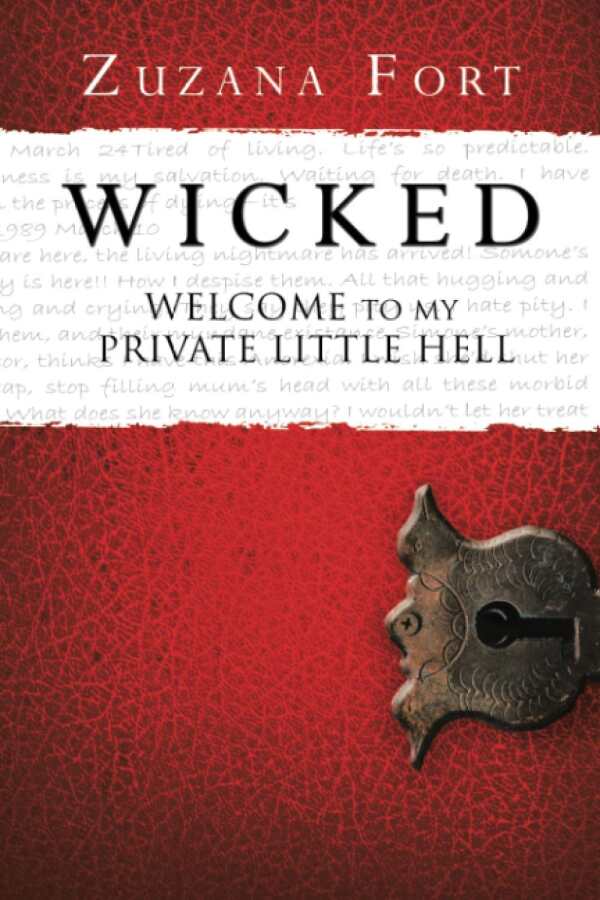It looks like you've stumbled upon a page meant to be read by our code instead of viewed directly. You're probably looking for this page.
Wicked
Welcome to My Private Little Hell
Wicked is a cautionary novel about an eating disorder, whose vulnerable lead regains her strength.
Zuzana Fort’s duology Wicked combines a clever epistolary novel about a teenager’s descent into anorexia with a one-act play, “Dictator in My Head,” that explores the same problems.
Based on Fort’s youth in the Czech Republic, Wicked is made up of a series of diary entries by Mary, a fourteen-year-old who has dreams of being a writer and an actor. She also depicts her family members in her entries: her older brother, Paul’s, disappointments manifest as ribbing about Mary’s weight; her father is distant; and her mother, a reporter, journalist, and producer, is threatened because of her refusal to join the Communist Party. As Mary navigates her own everyday concerns, her mother decides to migrate with her children to Australia, via an Austrian refugee camp.
The spontaneous immediacy of the entries mimics Mary’s natural teenage self-absorption. The problems surrounding her, including her parents’ dissolving marriage, are realistically detailed, though Mary’s volatile moods—she moves from heartfelt exuberance to self-conscious worry—still take center stage. Her self-imposed dietary restrictions are insidious, though. Indeed, her eating disorder infiltrates her fragile psyche. At first, it’s mentioned through casual asides. Soon, punishing exercise and increasing anguish follow, and Mary’s self-image slips from her control, though she believes that she’s in full command of it: when Mary’s mother first raises the possibility of anorexia, Mary ignores it.
Despite the entries’ brevity and the lapses in time between them, Mary’s presence is strong. She’s simultaneously guileless and insightful, perched between her childish impulses and grown-up desires. When it comes to her family’s foibles, she is observant and humorous. Still, her treatment of profound topics, including religion and racism, is limited to isolated digressions as the topics capture her attention.
The book’s settings are sparse. Though communism has a clear impact on Mary’s family, which maintains secrecy as they try to leave, their home country is not emphasized much—nor is the wider political context of the late 1980s and early 1990s covered. The Austrian refugee camp is better detailed through descriptions of its crowding; Australia is covered in terms of Mary’s food aversions and mentions of places like Bondi Beach. Entries of a too-similar nature belabor her deteriorating health; medical treatments result in a sense of resolution. “Dictator in My Head” is present to focus on Mary’s mental health in a more concentrated way, vivifying her internal voices. It’s a hyperbolic display of raw pain that distills the novel’s essence, emphasizing how anorexia affects everyone in a family.
Wicked is a cautionary novel about an eating disorder, whose vulnerable lead regains her strength.
Reviewed by
Karen Rigby
Disclosure: This article is not an endorsement, but a review. The publisher of this book provided free copies of the book and paid a small fee to have their book reviewed by a professional reviewer. Foreword Reviews and Clarion Reviews make no guarantee that the publisher will receive a positive review. Foreword Magazine, Inc. is disclosing this in accordance with the Federal Trade Commission’s 16 CFR, Part 255.
